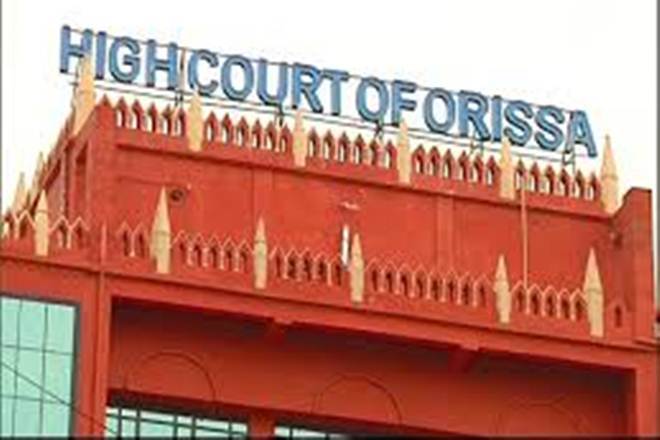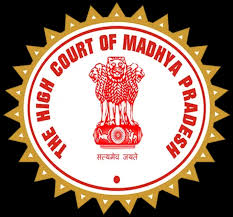J.N. Sarma, J.@mdashThis application Under Article 226, of the Constitution of India has been filed by 7 persons claiming that a Mandamus to be issued directing the Respondents to appoint them as Constables (A.B. & U. B.) from the select list dated 25.4.93 published by the Superintendent of Police, Kamrup, Guwahati (Annexure-III). The seven Petitioners are qualified to be appointed us Constable and on 24.3.93 the Authority wanted to appoint some Constables and accordingly issued a notification for that purpose. Accordingly an interview and physical test was conducted at the parade ground of 4th APBn., Kahilipara on 27.3.93 at 8.00 A.M. The Petitioners were asked to attend the ground with original certificates. The age and other things has been given in the notification. Accordingly 17 persons were selected for U.B. and, 4 persons were selected for A.B. These persons also submitted the verification roll vide Annexure-V. The select list as Annexure-III was duly published by the Superintendent of Police, Kamrup, Guwahati, Thereafter these persons were not appointed. But on 10.8.93 a notice was issued to select again Constables for U.B. and A.B. It is Annexure-VII to the Writ Application. Thereafter this Writ Application was filed and on 2.9.93 this Court passed an interim order as follows:
Regarding prayer for stay the Respondents No. 2, 3 and 4 are directed to keep vacant seven posts for a period of 3 months from to-day.
Subsequently this order was continued by subsequent orders of this Court and accordingly even to-day seven posts have been kept vacant for these petitioners.
2. I have heard Shri A.S. Choudhury, learned Counsel for the Petitioners and Shri R. Baruah, learned Government Advocate. No Affidavit-in-opposition has been filed on behalf of the Respondents. Shri Baruah appearing for the State of Assam has raised a preliminary objection that no mandamus can be issued by this Court directing the Respondents to give appointment to the petitioners. Shri Baruah contended that being included in the select list does not give a right to the Petitioners to claim a mandamus for being appointed. In this connection he relied on
To tide over unforeseen exigencies, power to make adhoc appointments, may be visualised as envisaged by explanation (b) to Rule 4 but it expressly states that by virtue of such appointment, the adhoc appointee docs not become member of the service. The Rules prescribe direct recruitment/promotion by selection as the mode of recruitment which would be done only by PSC or promotion committee duly constituted and by no other body. Therefore, adhoc employee should be replaced as expeditiously as possible by direct recruits. A little leeway to make adhoc appointment due to emergent exigencies, does not clothe the executive Government with power to relax the recruitment or to regularise such appointment nor to claim such appointments to be regular in accordance with rules, Back door adhoc appointments at the behest of power source or otherwise and recruitment according to rules are mutually antagonistic strange bed partners. They can not co-exist in the same sheath. The former is in negation of fair play. The later are the product of order and regularity, Every eligible person need not necessarily be fit to be appointed to a post or office under the Slate, selection according to rules by a property constituted commission and fitment for appointment as-sures fairness in selection and inhibits arbitrariness in appointments.
3. He further relies on the observations made by the Supreme Court as follows:
The process for selection and selection for the purpose of recruitment against existing (sic) anticipated vacancies, does not create a right, to be appointed to the post which can be enforced by a mandamus.
4. He also relies in 1991 S.C. 1612 (Shankarsan Dash v. Union of India). The Supreme Court stated as follows : "It can not be said that if a number of vacancies are notified for appointment and adequate number of candidates are found fit, the successful candidates acquire an indefeasible right to be appointed which can not be legitimately denied. Ordinarily the notification merely amounts to an invitation to qualified candidates to apply for recruitment and on their selection they do not acquire any right to the post. Unless the relevant recruitment rules so indicate, the State is under the legal duty to fill up all or any of the vacancies. However it docs not mean that the State has the licence of acting in an arbitrary manner. The decision not to fill up the vacancies has to be taken bonafide for appropriate reasons. And if the vacancies or any of them are filled up, the State is bound to respect the comparative merit of the candidates, as reflected at the recruitment test, and no discrimination can be permitted". This being the position of law, the argument which is put forward by Shri Baruah in general terms can not be accepted. The State by holding a selection can not turn back and say that no appointment shall be made from that select list. There may be causes where because of change in circumstances, there may be the extreme necessity to cancel the previous select list and come for fresh appointment. But this can not be resorted to generally without bonafide and honest reason, otherwise the selection made earlier by the authority giving legitimate expectation in the minds of the candidates shall be belied. This is not the object of law. In the instant there is absolutely no material to show for what, reason the earlier select list was given a go-bye and a fresh advertisement was made. In this connection let us have a look at the decision regarding the validity of the select list and the liability of the authority to make appointment on the basis of such select list. In
Once a person is declared successful according to the merit list of selected candidates, the appointing authority has the responsibility to appoint him, even if the number of vacancies undergoes a change alter his name is included in the list of selected candidates.
In
It is true that mere inclusion in the select list does not confer upon the candidates included therein an indefeasible right to appointment (State of Haryana v. Subhas Chandra Marwaha, Mani Subrat Jain v. State of Haryana, State of Kerala v. A. Lakhmikutty) but that is only one aspect of the matter, The other aspect is the obligation of the Government to act fairly. The whole exercise can not be reduced to a farce. Having sent a requisition/request to the Commission to select a particular number of candidates for a particular category, - in pursuance of which the Commission issues a notification, holds a written test, conducts interviews, prepares a select list and then communicates to the Government the Government can not quietly and without good and valid reasons nullify the whole exercise and tell the candidates when they complain that they have no legal right to appointment. We do not think that any Government can adopt such a stand with any justification to-day. Shankarsan Dash v. Union of India where the earlier decision of this Court are also noted; The following observations of the Court are apposite; (SCC pp 50-51, Para-7)
It is not correct to say that if a number of vacancies are notified for appointment and adequate number of candidates are found fit, the successful candidates acquire an indefeasible right to be appointed which can not be legitimately denied. Ordinarily the notification merely amounts to an invitation to qualified candidates to apply for recruitment and on their selection they do not acquire any right to the post. Unless the relevant recruitment rules so indicate, the State is under no legal duty to fill up all or any of the vacancies. However, it does not mean that the State has the licence of acting in an arbitrary manner. The decision not to fill up the vacancies has to be taken bonafide for appropriate reasons. And if the vacancies or any of them are filled up, the State is bound to respect the comparative merit of the candidates as reflected at the recruitment test, and no discrimination can be permitted. This correct position has been consistently followed by this Court, and we do not find any discordant note in the decisions in State of Haryana v. Subhas Chander Marwaha, Neelima Shangla v. State of Haryana or Jetendra Kumar v. State of Punjab.
5. In a Division Bench decision of this Court reported in 1983 1 GLI. N.O.C. 20, Smt. Sumila Boro v. State of Assam the Division Bench was considering the right of a person being selected under the Assam Ministerial District Establishment-Service Rules, 1967. The facts of that case were that the Petitioners found their place in the select list prepared by the Central Recruitment Committee, but they were not appointed. The other facts of that case are not necessary. This Court after considering the facts laid down that the Petitioners who have not still been appointed have acquired a right to be so appointed. To deny them appointment on the thin ground that the list remains valid for one year as mentioned in the Note of Rule 6(5) would amount to denial of justice. In the instant case also these Petitioners were selected in the regular course and the select list was published, thereafter the authority without any rhym and reason wanted to have a fresh selection, that can not be done. The right of the Petitioners can not be denied in the manner sought to be done by the authority. The Petitioners have a right to be appointed on the basis of selection to the existing vacancies at that point of time.
6. In that view of the matter this writ application is allowed. The Petitioners are directed to be appointed by the Respondents within a period of 3 months on the basis of the select list (Annexure-III to the writ application), It is needless to say those appointments to be made by the authority shall be subject to the Police Verification and Medical Fitness. But it is made clear that at this stage the question of age of the Petitioners shall not be relevant in as much as those Petitioners have been kept hanging by the authority from 27.4.93 till this date. Their appointment shall create no difficulty in as much as by this Court''s direction 7 posts were kept vacant.

